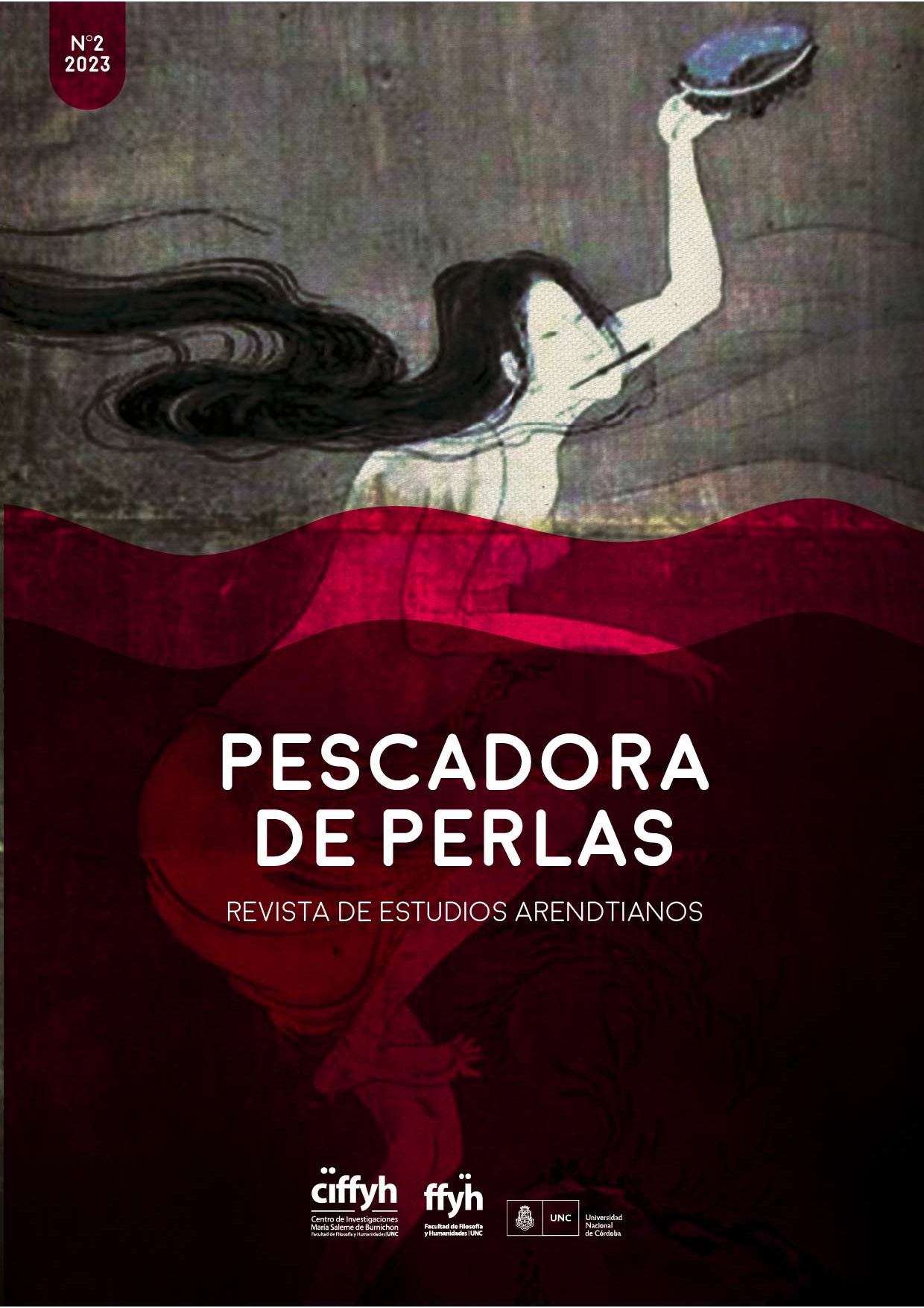Review of Dicionário Hannah Arendt de Adriano Correia et al
Keywords:
review, dictionary, ArendtAbstract
The book Dicionário Hannah Arendt aims to synthesize and update the critical fortune of Hannah Arendt's work, especially in Brazil. Composed of 51 entries, predominantly written by Brazilian thinkers, it addresses a variety of themes that run through central issues in Arendt's work, such as totalitarianism, rupture, violence, politics, action and freedom; peripheral themes such as republicanism, education, civil disobedience, the council system, and the rabble; and themes developed between the lines such as responsibility, thinking without handrails, temporality, reification and love. However, we can only understand the book's updating if we know its place in the history of the reception and irradiation of Hannah Arendt's thought in Brazil. In this way, our assessment follows a historical perspective of surveying the general milestones of Arendt's critical fortune, based above all on the figure of Celso Lafer, the process of translating the work and the formation of spaces for researchers to socialize. By carrying out this appreciation exercise, we can indicate the book as a crystallization of the critical fortune of Hannah Arendt's work in Brazil.
References
Brea, G., Nascimento, P. C., & Milovic, M. (Orgs.). (2010). Filosofia ou Política? Diálogos com Hannah Arendt. Annablume.
Brepohl, M. (Org.). (2013). Eichmann em Jerusalém: 50 anos depois. Ed. UFPR.
Brepohl, M. (2001, Jan./Jun.) Pensamento e ação na obra de Hannah Arendt. História & Perspectivas, 1(24), 27-38.
Carvalho, J. S. F., & Custódio, C. O. (Orgs.). (2017). Hannah Arendt: a crise na educação e o mundo moderno. Intermeios; Fapesp.
Correia, A., & Nascimento, M. (Orgs.). (2008). Hannah Arendt: entre o passado e o futuro. UFJF.
Duarte, A., Lopreato, C., & Brepohl, M. (Orgs.). (2004). A banalização da violência: a atualidade do pensamento de Hannah Arendt. Relume Dumará.
Jardim, E., & Bignotto, N. (Orgs.). (2001). Hannah Arendt: diálogos, reflexões, memórias. Ed. UFMG.
Lafer, C. (1981). A política e a condição humana. In: Arendt, H., & Raposo, R. (Trad). A condição humana. (1-12). Forense Universitária.
Lafer, C. (1988). A reconstrução dos direitos humanos: um diálogo com o pensamento de Hannah Arendt. Companhia das Letras.
Lafer, C. (1972). Da dignidade da política. In: Arendt, H., & Barbosa, M. W. (Trad). Entre o passado e o futuro. (9-27). Perspectiva.
Lafer, C. (2017, Jan./Fev.). Hannah Arendt: 110 anos. Revista Brasileira, 6(90), 73-76.
Lafer, C. (1979). Hannah Arendt: pensamento, persuasão e poder. Paz e Terra.
Lafer, C. (2008). Hannah Arendt: vida e obra. In: Arednt, H., & Bottman, D. (Trad). Homens em tempos sombrios. (291-312). Companhia das Letras.
Lafer, C. (2018). O antissemitismo, os judeus e o mundo moderno. In: Lafer, Celso. Hannah Arendt: pensamento, persuasão e poder. 3. ed. (143-156). Paz e Terra.
Lafer, C. (2001). Reflexões de um antigo aluno de Hannah Arendt sobre o conteúdo, a recepção e o legado de sua obra, no 25º aniversário de sua morte. In: Jardim, E., & Bignotto, N. (Orgs.). Hannah Arendt: diálogos, reflexões, memórias. (11-34). Ed. UFMG.
Vaz, C. A. C., & Winckler, S. (Orgs.). (2009). Uma obra no mundo: diálogos com Hannah Arendt. Argos.
Young-Bruehl, E. (1997). Por amor ao mundo: a vida e a obra de Hannah Arendt. Tradução Antônio Trânsito. Relume-Dumará.
Downloads
Published
Issue
Section
License
Copyright (c) 2023 Jaciel Rossa Valente

This work is licensed under a Creative Commons Attribution-NonCommercial-ShareAlike 4.0 International License.
Consultar los Avisos de derecho de autor. Aquellos autores/as que tengan publicaciones con esta revista, aceptan los términos siguientes:
- Los/as autores/as conservarán sus derechos de autor sobre el texto, y garantizarán a la revista el derecho de primera publicación, el cual estará simultáneamente sujeto a la Licencia de reconocimiento de Creative Commons: Atribución – No Comercial – Compartir Igual (by-nc-sa); no se permite un uso comercial de la obra original ni de las posibles obras derivadas, la distribución de las cuales se debe hacer con una licencia igual a la que regula la obra original.
- Después de la publicación, los trabajos podrán ser reproducidos por los autores en otros medios siempre que no se omita la indicación de la publicación original en esta revista. En este sentido, los autores/as podrán adoptar otros acuerdos de licencia no exclusiva de distribución de la versión de la obra publicada (p. ej.: al depositarla en un archivo institucional o publicarla en un volumen monográfico) siempre que se indique la publicación inicial en Pescadora de Perlas.
- La cesión de derechos de primera publicación de los/as autores otorga a Pescadora de Perlas autorización para que el trabajo sea colocado en el repositorio institucional de la Universidad Nacional de Córdoba y difundido a través de las bases de datos.



